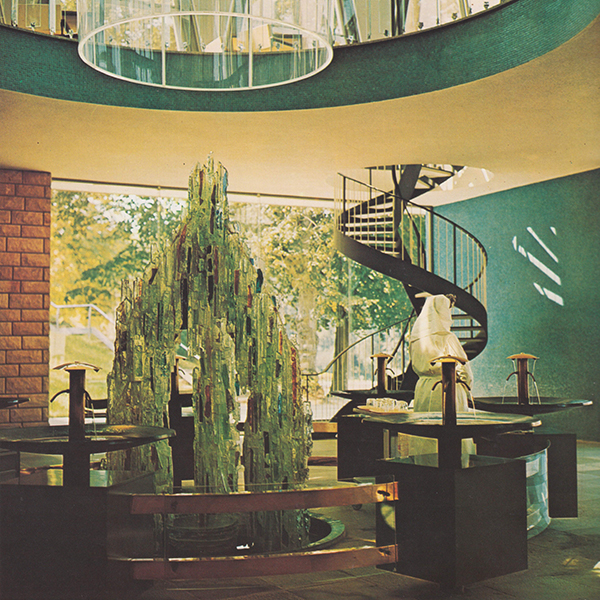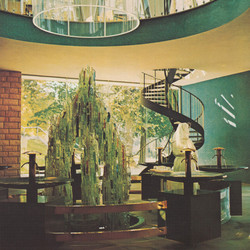Läuten der Seele
Back in September, we sang the praises of Brannten Schnüre’s “Das Glück Vermeiden”. Intertwining elements of folk, musique concrète, ambient, and electroacoustic music, this brilliant offering by the duo of Christian Schoppik and Katie Rich was, in fact, the second LP this year that encountered Schoppik capturing the hearts and minds of the musical underground. Only a handful of months prior had witnessed the release of his debut, self-titled solo endeavor under the moniker Läuten der Seele, issued by Hands in the Dark. As beautiful as it is displacing - reconfiguring the medium of musique concrète in visionary ways - it remains one of the most hotly tipped albums of 2022. In the midst of an incredibly prolific period, Schoppik and Hands in the Dark now return with “Die Mariengrotte als Trinkwasseraufbereitungsanlage” (The Mother Mary Grotto as a Drinking Water Treatment Plant), his second Läuten der Seele LP in less than a year. Radically expanding the project’s material and conceptual potential, while retaining every bit of its spirit, it’s a remarkable statement, rounding out a thrillingly prolific year.
Back in September, we sang the praises of Brannten Schnüre’s “Das Glück Vermeiden”. Intertwining elements of folk, musique concrète, ambient, and electroacoustic music, this brilliant offering by the duo of Christian Schoppik and Katie Rich was, in fact, the second LP this year that encountered Schoppik capturing the hearts and minds of the musical underground. Only a handful of months prior had witnessed the release of his debut, self-titled solo endeavor under the moniker Läuten der Seele, issued by Hands in the Dark. As beautiful as it is displacing - reconfiguring the medium of musique concrète in visionary ways - it remains one of the most hotly tipped albums of 2022. In the midst of an incredibly prolific period, Schoppik and Hands in the Dark now return with “Die Mariengrotte als Trinkwasseraufbereitungsanlage” (The Mother Mary Grotto as a Drinking Water Treatment Plant), his second Läuten der Seele LP in less than a year. Radically expanding the project’s material and conceptual potential, while retaining every bit of its spirit, it’s a remarkable statement, rounding out a thrillingly prolific year.
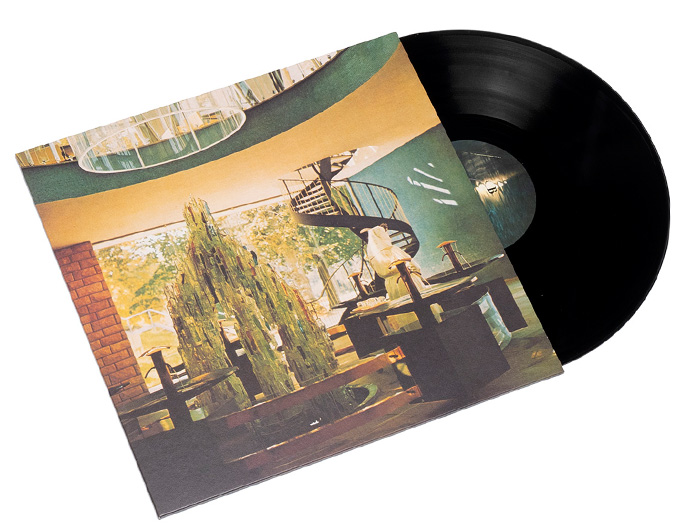
Based in the small Bavarian city of Würzburg, Germany, for the majority of his musical career Christian Schoppik has focused his energies into the widely acclaimed duo Brannten Schnüre, as well as a handful of other collaborative projects like Agnes Beil, Diamantener Oberhof, and Freundliche Kreisel, cultivating a rich territory at the borders of folk, ambient, electroacoustic music, and narrative conceptualism. Given the buzz around these projects, its little surprise that he has ventured into solo territory, nor that these efforts - issued under Läuten der Seele - have received the glowing reception that they have. Over the better part of a decade, he has become a master at his craft.
Where Läuten der Seele’s self-title debut - translating to to “ringing of the soul” - plumbed the depths of the German psyche and nostalgia across over the course of 12 abstract audio collages, constructed from the sounds of 50’s Heimatfilme, “Die Mariengrotte als Trinkwasseraufbereitungsanlage” encounters Schoppik moving toward territory, that is at once more ambitious and less explicit in its narrative content. Not only does the album comprise two side long works rather than a series of shorter compositions, but it draws on a radically expanded pallet of source material of more ambiguous origins.
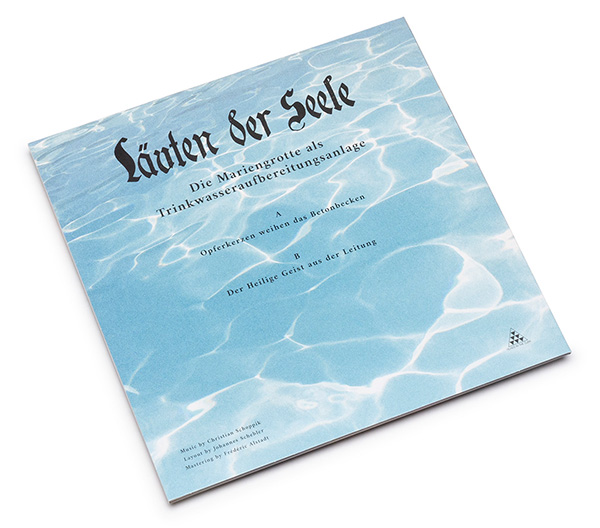
Drawn back and viewed at a distance, Schoppik’s work as Läuten der Seele belongs to a second, under-discussed arc of musique concrète. Where this practice - tape collage / music - has been historically been aligned with the early innovations of composers like Halim El-Dabh, Pierre Schaeffer, and Pierre Henry and the use of sonorous material primarily drawn from outside what is traditionally regarded as “musical”, during the 1970s the field was radically altered by the efforts of Carl Stone, who began recomposing preexisting music - drawn from vinyl LPs - into visionary new compositions. It is within this later tradition that Läuten der Seele is best understood. Building a new context of sonority from preexisting gestures of musicality, like Stone’s, his work carries the ghosts of countless others, tangibly colliding disparate cultures and moments in time.
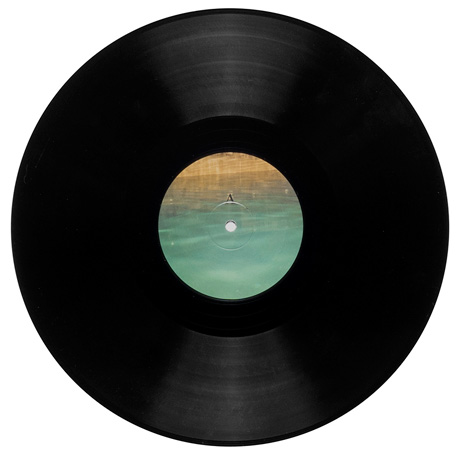
With “Die Mariengrotte als Trinkwasseraufbereitungsanlage” Läuten der Seele is less explicit with the source material from which the album’s two works - “Opferkerzen weihen das Betonbecken” and “Der Heilige Geist aus der Leitung” - have been constructed, dislocating the album’s direct association with a specific moment and temperament in Germany’s past, and allowing for a broader immersion into the generalized psychological state, without sacrificing a coherency with the dreamy, darker realms of nostalgia that were presented by its predecessor. Heavily treated and processed warbling loops and fragments of unnamed origins drift within the broad aether of each composition, weaving a remarkable rethinking of the terms of both ambient and electroacoustic music. Tonal elements transform into sweeping landscapes of texture, while textural elements morph toward surprising movements of musicality, collectively building toward a body of music that feels wholly original and free from the gravity of the past - giving each element a new life in the present - while feeling respectful of it and pregnant with its vast potential in meaning.
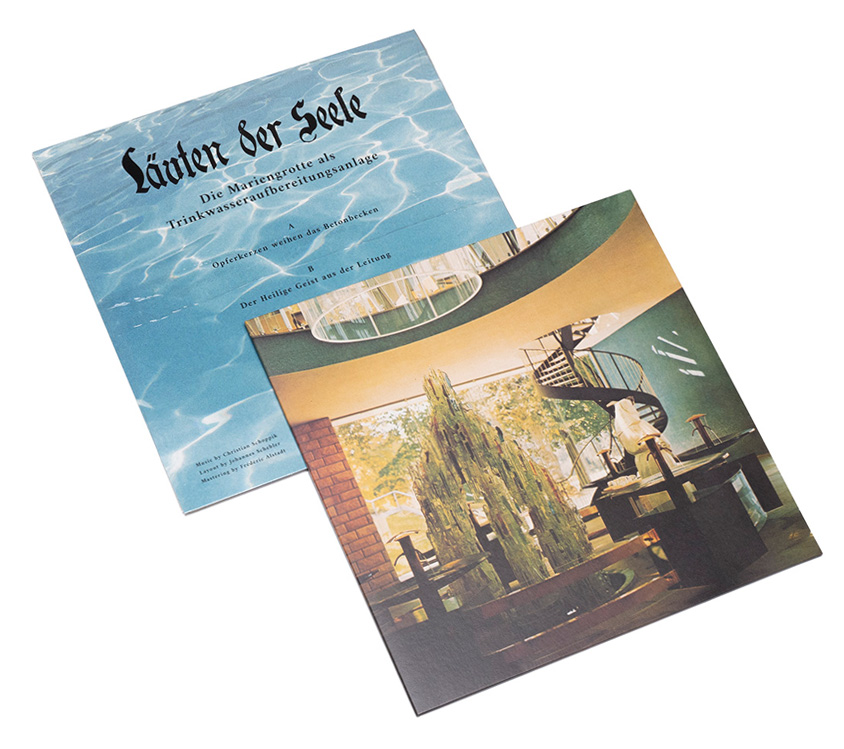
An otherworldly, extended journey across time and space, Läuten der Seele’s “Die Mariengrotte als Trinkwasseraufbereitungsanlage” charts new and truly exciting ground for the project, taking on the challenge of longer forms and benefitting greatly for it. It seems everything Christian Schoppik touches these days comes up as gold, propelling all the power and conceptual richness of what he has cultivated over the years in Brannten Schnüre to new heights. Issued by Hands in the Dark in a limited vinyl edition, if its predecessor is anything to go on - having sold out almost immediately - this one isn’t going to sit around for long. Grab it while you can.
